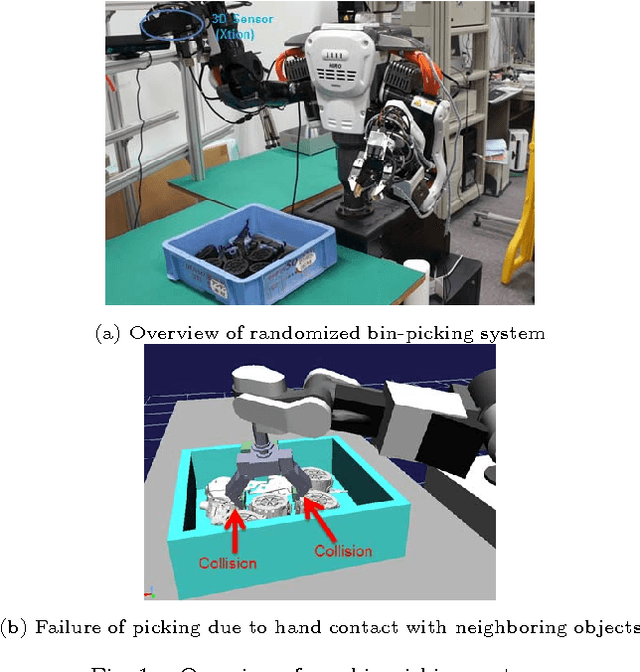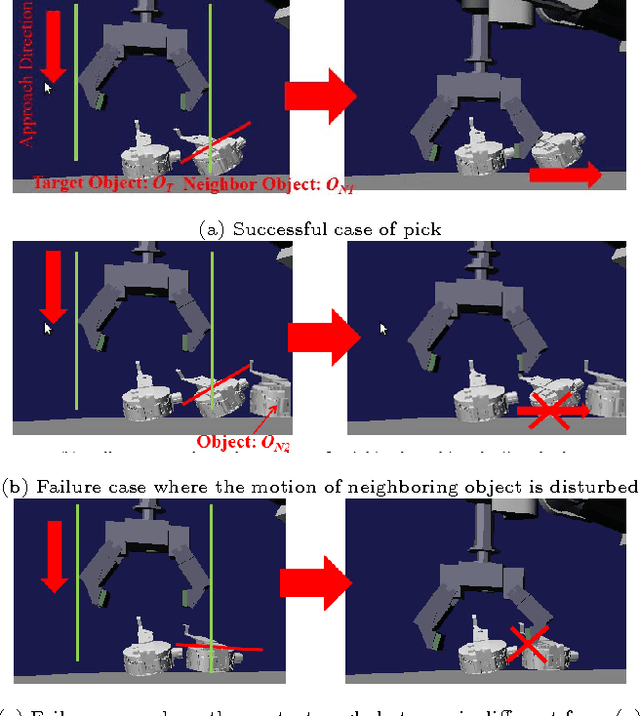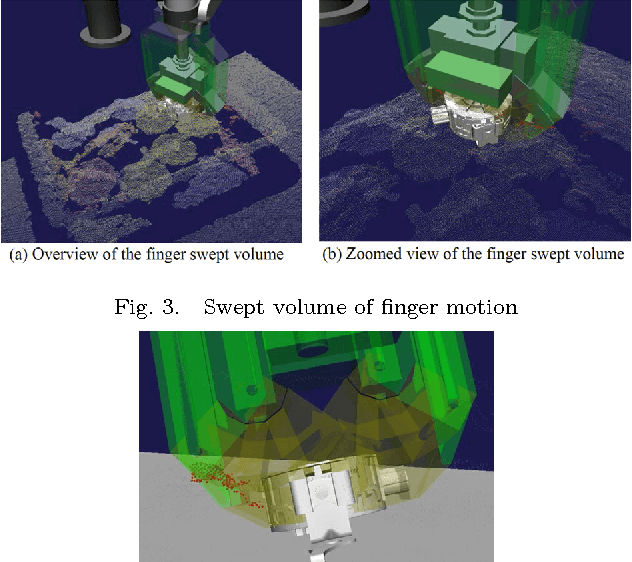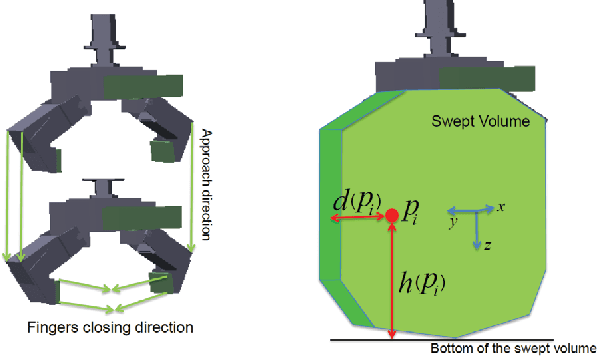Initial Experiments on Learning-Based Randomized Bin-Picking Allowing Finger Contact with Neighboring Objects
Paper and Code
Jul 11, 2016



This paper proposes a novel method for randomized bin-picking based on learning. When a two-fingered gripper tries to pick an object from the pile, a finger often contacts a neighboring object. Even if a finger contacts a neighboring object, the target object will be successfully picked depending on the configuration of neighboring objects. In our proposed method, we use the visual information on neighboring objects to train the discriminator. Corresponding to a grasping posture of an object, the discriminator predicts whether or not the pick will be successful even if a finger contacts a neighboring object. We examine two learning algorithms, the linear support vector machine (SVM) and the random forest (RF) approaches. By using both methods, we demonstrate that the picking success rate is significantly higher than with conventional methods without learning.
 Add to Chrome
Add to Chrome Add to Firefox
Add to Firefox Add to Edge
Add to Edge